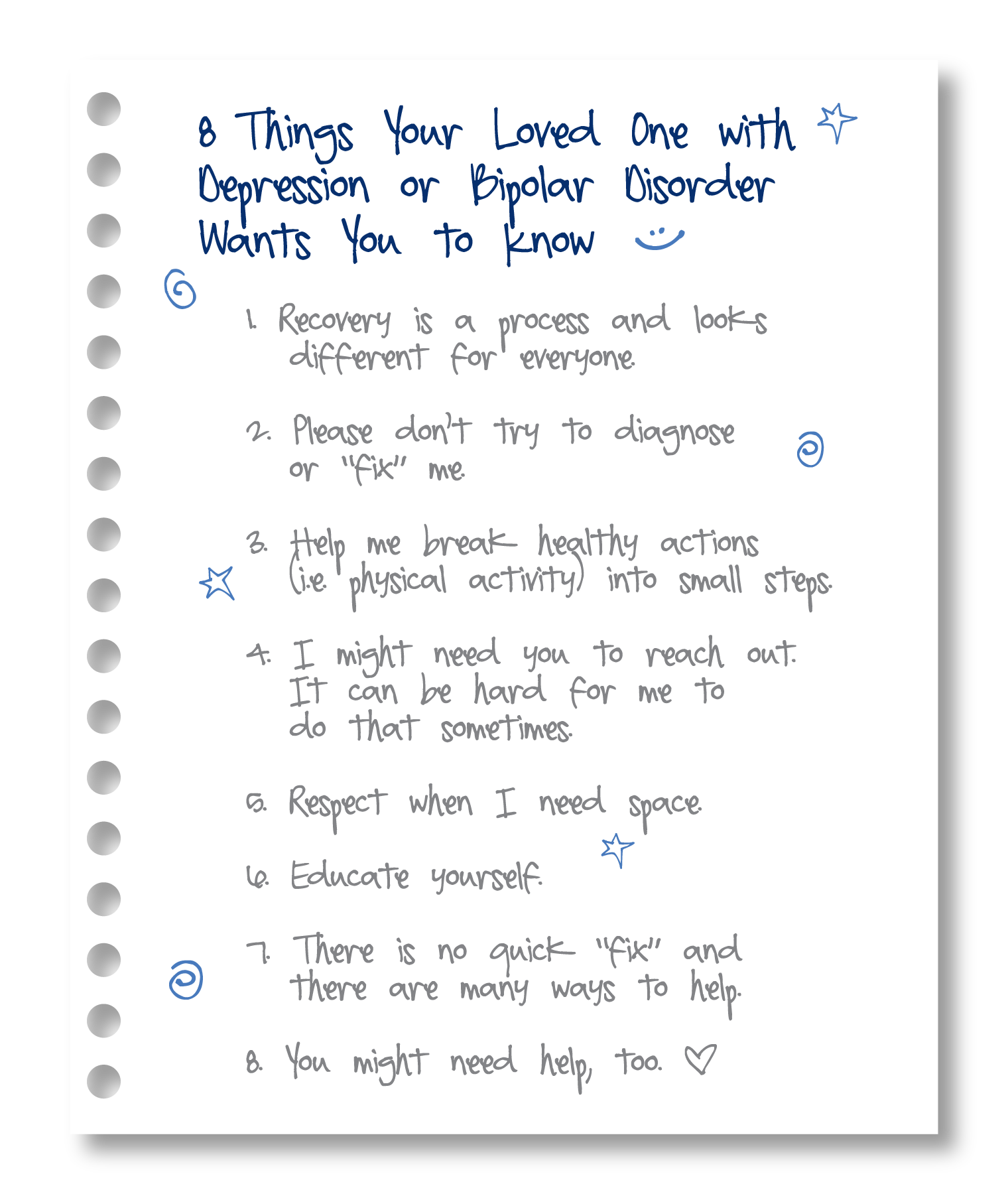Outstanding Info About How To Deal With A Bipolar Loved One
People with bipolar disorder often have confusing thoughts that make them doubt themselves.
How to deal with a bipolar loved one. While you listen, be mindful of your own attitude and responses. Get involved in your treatment tip 2: Learn more about bipolar disorder “the best way to assist someone with bipolar disorder is to educate yourself,” says bryan bruno, md, a psychiatrist and assistant clinical professor of.
Small tasks like doing the dishes, going to the grocery store, or picking up children can seem impossible to someone going through a difficult time. The next moment, a sudden mood shift or behavioral change turns your. Bipolar disorder is a severe mental illness that can be confusing for other people to deal with.
Moving toward recovery and happiness requires you to take care of your mental and physical health. If you have a loved one with bipolar disorder, expressing your thoughts and feelings during conflicts can be natural. Do your own research by going online to national alliance of mental illness or to depression and bipolar support alliance, or by doing a google search of the words “bipolar disorder” (or.
People who are manic often feel isolated from other people. Following a routine generally helps people with bipolar disorder stick with treatment. Spending even short periods of time with them helps.
Helping someone cope with bipolar disorder doesn’t happen overnight. It is an ongoing process of encouragement, talking and generally being there. Act on warning signs tip 4:
Someone with bipolar disorder might be so depressed that they cannot get out of bed one day and then seem so optimistic and energetic the next day that no one can keep up. Support your loved one in building a routine. Be patient when your loved one doesn’t feel like talking, and be patient when their moods change.
Start by educating yourself and learning about bipolar disorder, including symptoms, causes, and treatment options. Let them know if you've noticed behaviours that often happen before an episode. Here are eight tips for supporting a loved one with bipolar disorder.
It is dangerous to ignore a mental health condition, as doing so can make it difficult to live life without complications. Your loved one needs to understand that they have you, and that you’re willing and want to listen to them, that you care about the challenges they face daily. Your loved one wouldn’t want you to suffer for months or longer.
Don’t dismiss all of their emotions and feelings as signs of their illness. Explore 7 ways to support a friend or loved one with this unpredictable condition. Keep stress to a minimum tip 7:
Below are six ways you can help a loved one who lives with bipolar disorder. If your loved one has a lot of energy, walk. But many times, arguing with a bipolar person may worsen the situation.






:max_bytes(150000):strip_icc()/when-your-your-loved-one-has-bipolar-disorder-5115269_final-ac91810fa53b49249830fd3ab718e406.jpg)











